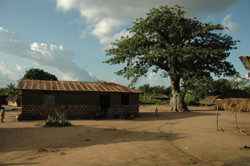Linking health and climate in Africa
The realisation that certain disease outbreaks are closely linked with changes in climate dates back to ancient times. However, our knowledge is incomplete when it comes to how particularly vulnerable areas will be affected in coming decades. Increased accuracy of seasonal weather forecasting using state-of-the-art equipment will hopefully enable the prediction of epidemic-prone infectious diseases. The aim of the EU-funded 'Quantifying weather and climate impacts on health in developing countries' (QWECI)(opens in new window) project was to understand why certain vector-borne diseases disproportionately affect certain parts of the world under specific climate conditions. Running in Ghana, Malawi and Senegal, the project studied how climate variation impacts on disease, especially vector-borne diseases including malaria and Rift Valley fever. The Ghana field project focused on the links between and mechanisms of malaria emergence, transmission and spread, and the role of climate change on disease variability. In Malawi, researchers collected incidence data from hospitals, and in Senegal they studied climate, water quality, vegetation, land use and veterinary aspects. Together, these studies helped generate medical databases and an atmospheric database with information about the geographical distribution of pathogens and potential climate drivers. A malaria prediction model was also created for the realistic simulation of seasonal disease patterns. Overall, QWECI improved modelling of health impacts in the African context through these field projects. Researchers also helped African stakeholders by providing up-to-date disease maps and a comprehensive early warning system for disease outbreaks in African countries. By bringing together climate forecasting systems, modelling and climate change research groups, QWECI has provided an invaluable tool to help decision makers combat disease in Africa.







